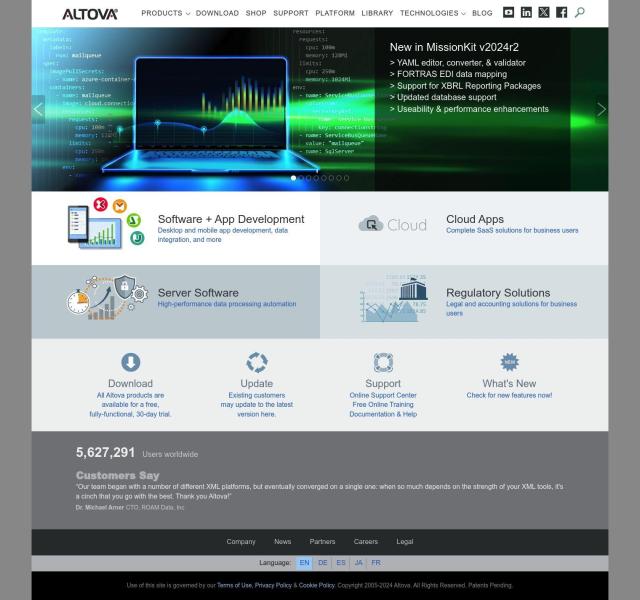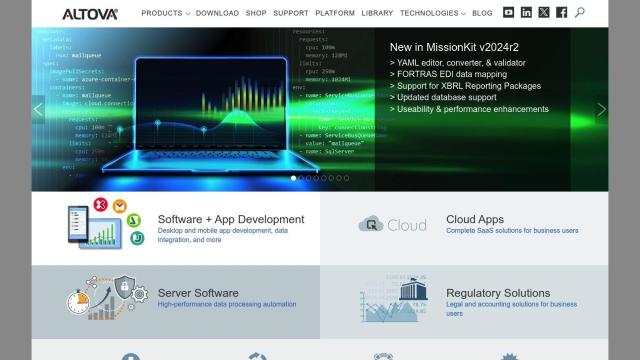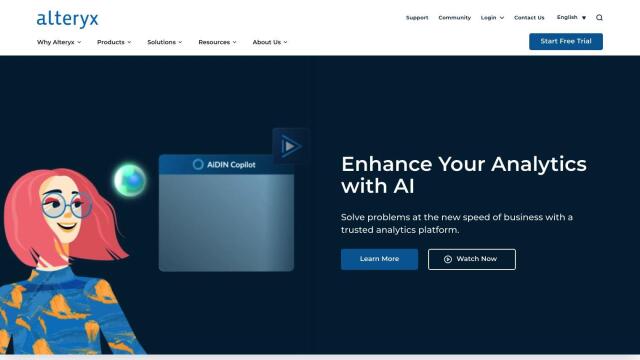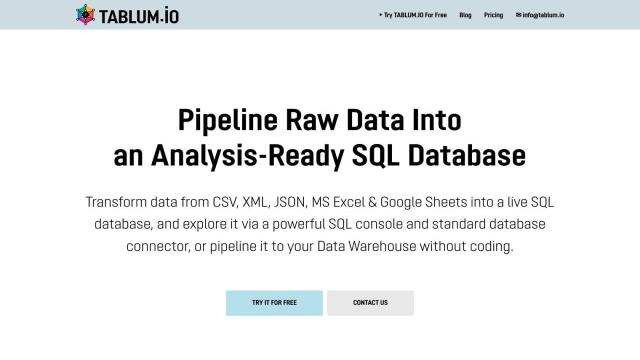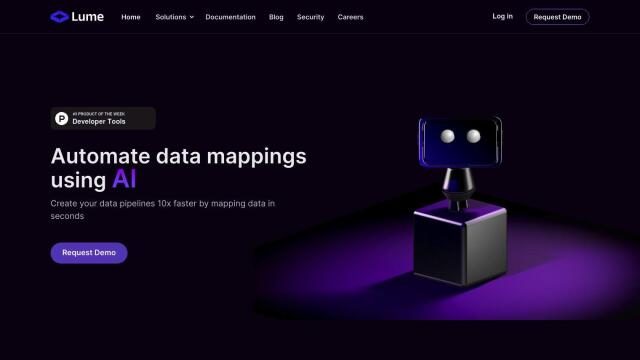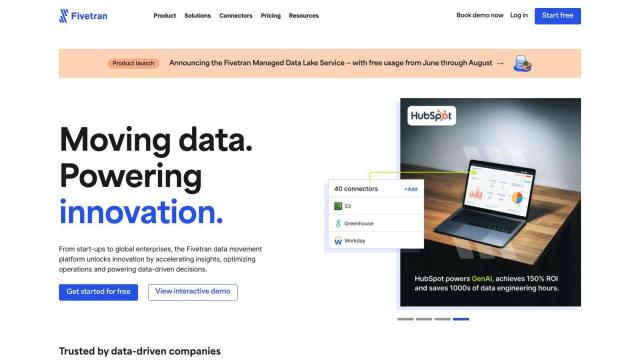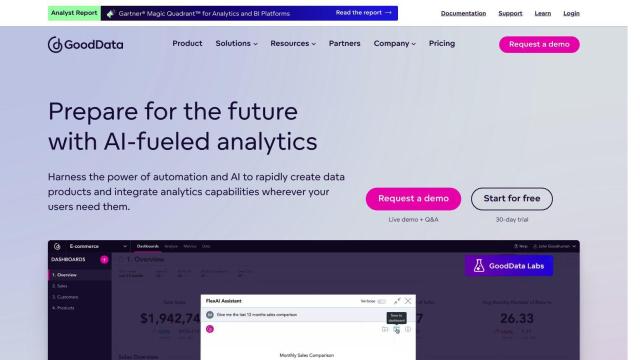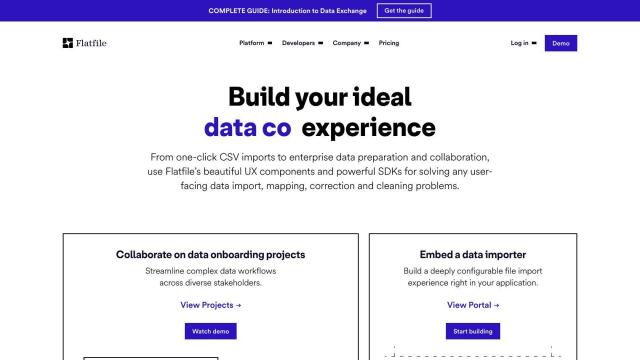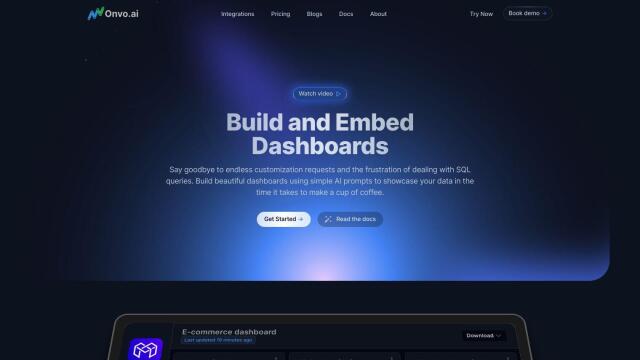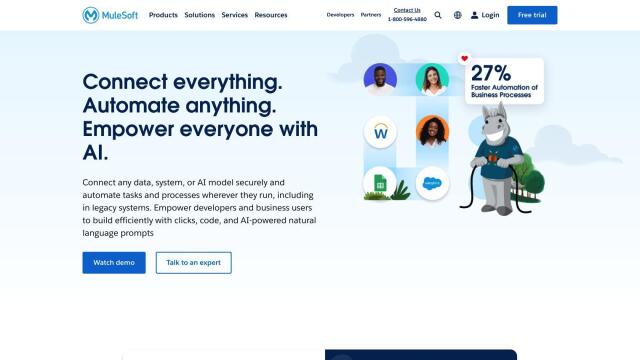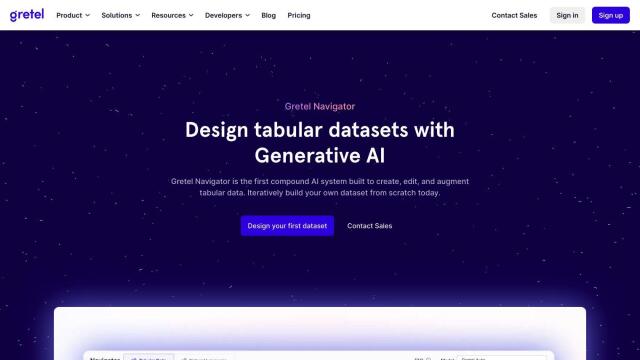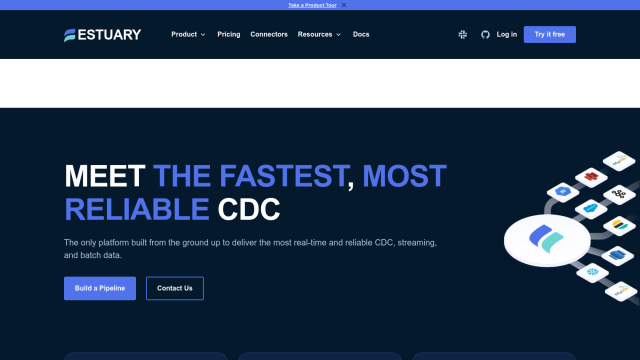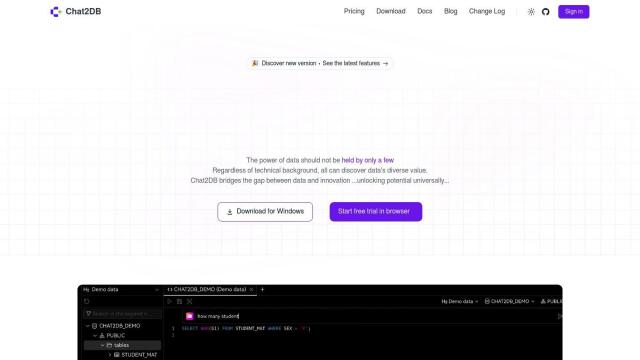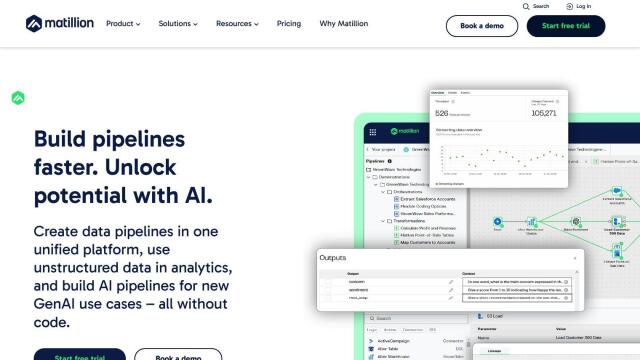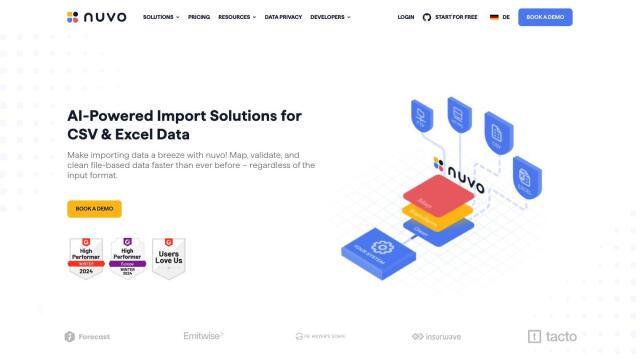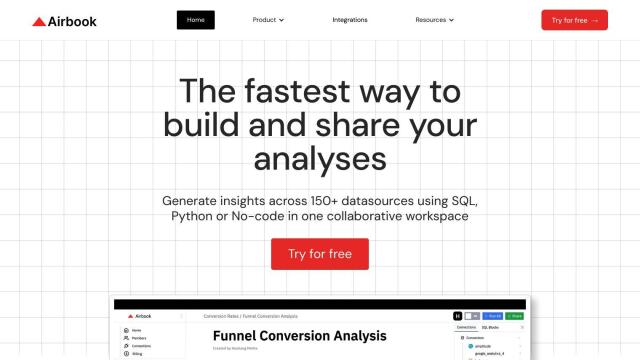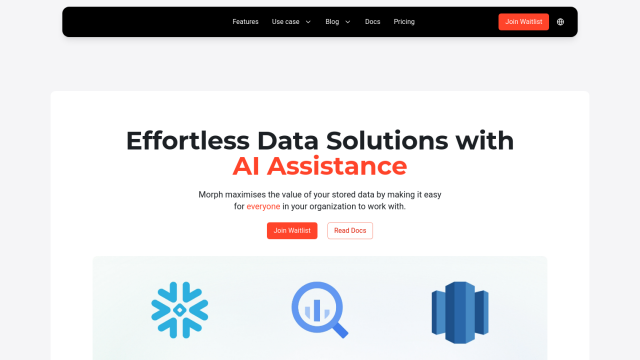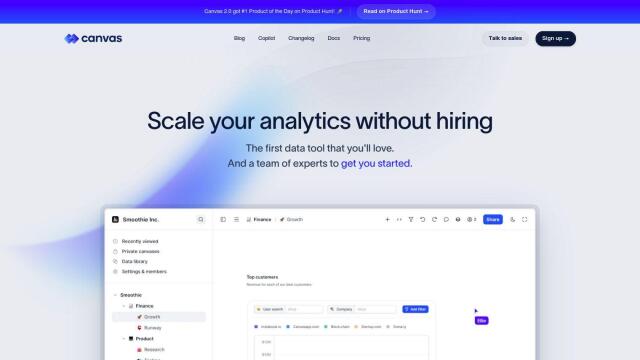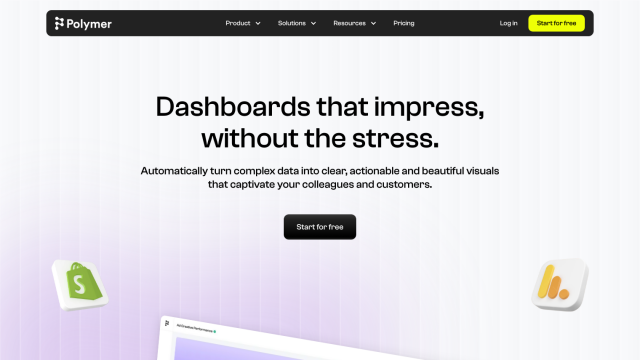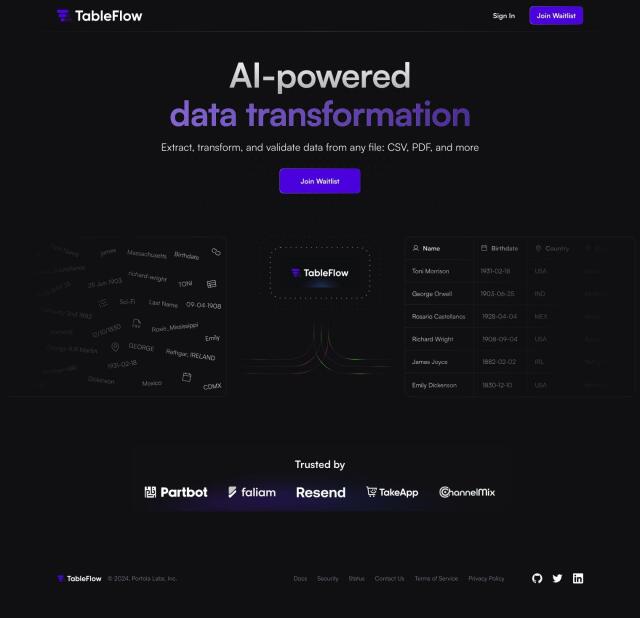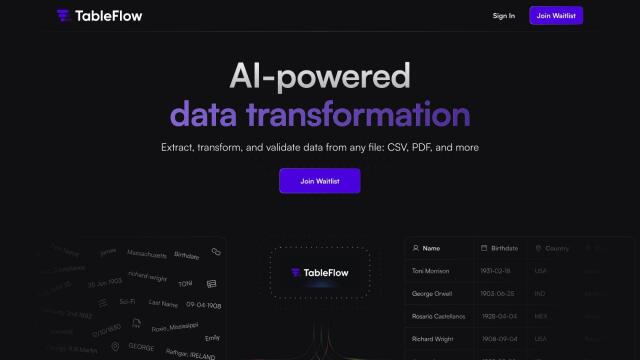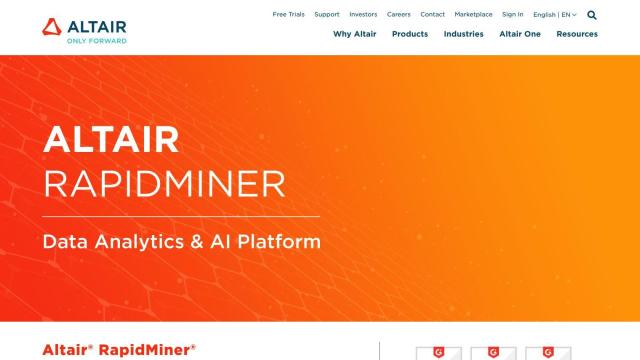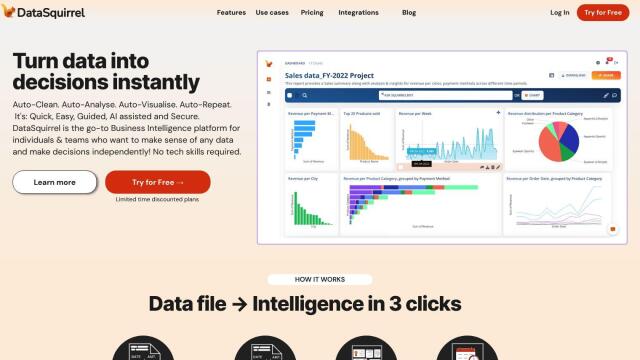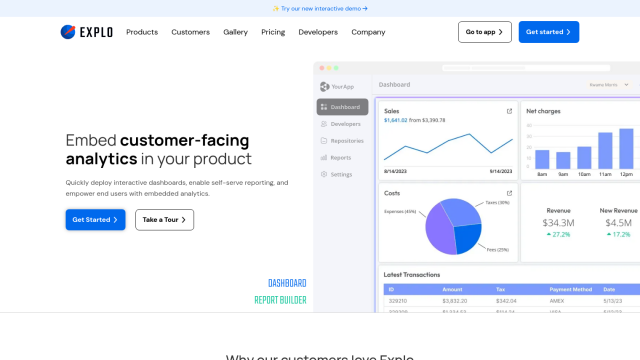
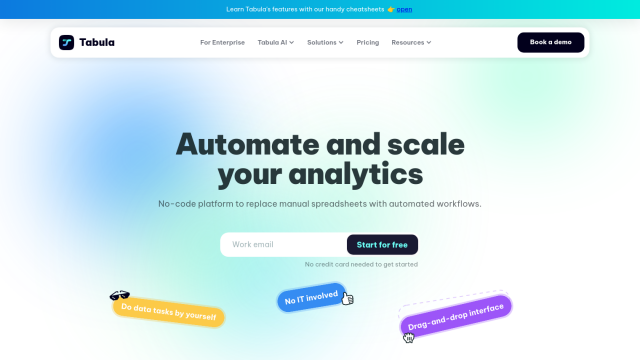
Tabula
If you're looking for another Altova alternative, Tabula is worth a look. This no-code AI-infused platform lets business and data teams integrate, transform and visualize data, automate workflows and get real-time insights. It's designed for both technical and non-technical users and can be deployed as on-premise, cloud or desktop apps, so it should be adaptable to a wide range of use cases.
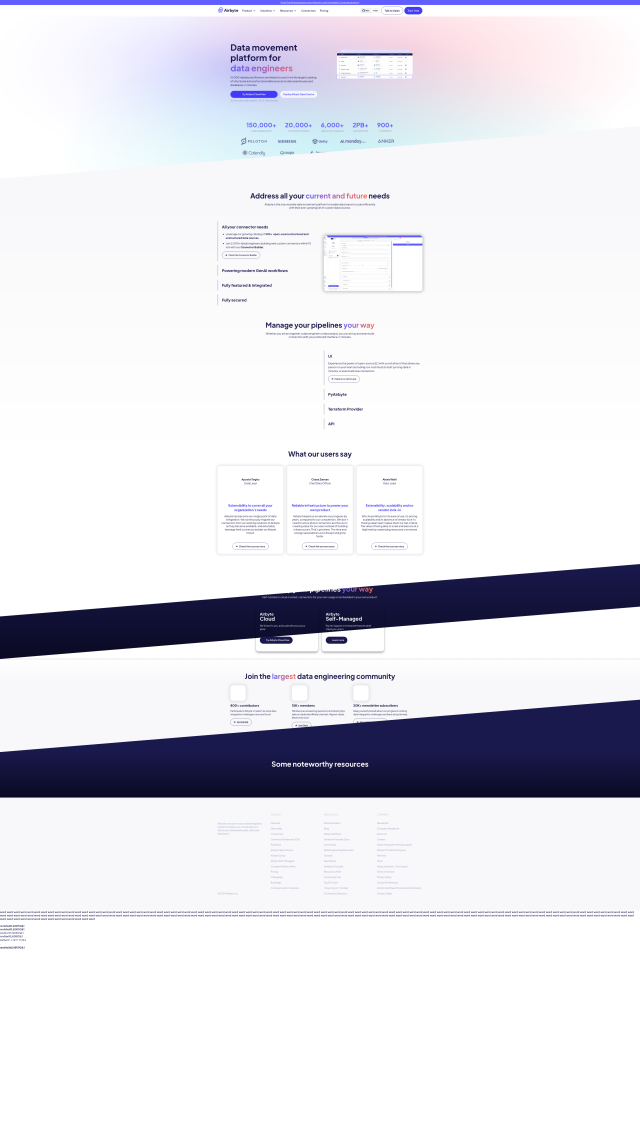
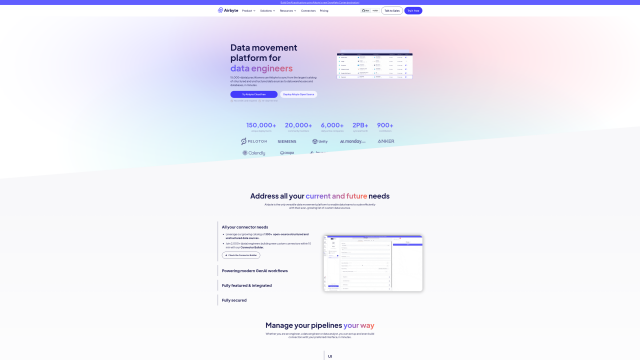
Airbyte
Another good option is Airbyte, an open-source data integration platform that can move data from more than 300 sources to many destinations. It's geared for data engineers, AI engineers and data analysts, with features like custom connectors, automated schema evolution and strong security. With multiple deployment options and an intuitive UI, Airbyte can handle everything from small-scale to large-scale data integration.
For more advanced analytics and automation, check out Alteryx. The platform automates workflows, boosts self-service insights and ensures data analysis is aligned with business goals. It's got generative and conversational AI, ETL/ELT, data preparation and strong governance, which makes it a good fit for roles like analytic leaders and data scientists. Alteryx can be used in the cloud or on premises, and it's widely used by large companies around the world.

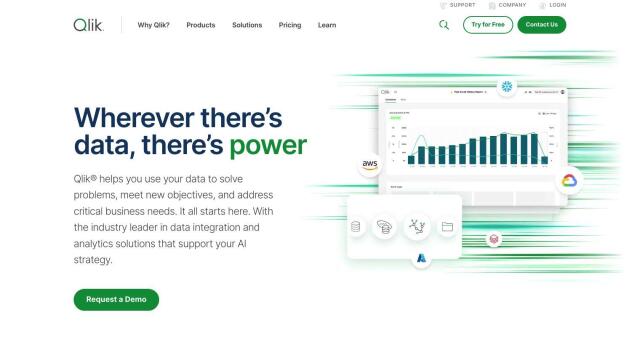
Qlik
Last, Qlik offers a broad range of tools for data integration, analytics and AI. It provides deep insights through end-to-end data integration, quality and analytics abilities, with a broad data fabric and integration with hundreds of data sources. Qlik's AI tools include AutoML and predictive AI application development, so it's a good fit for many industries and roles.
